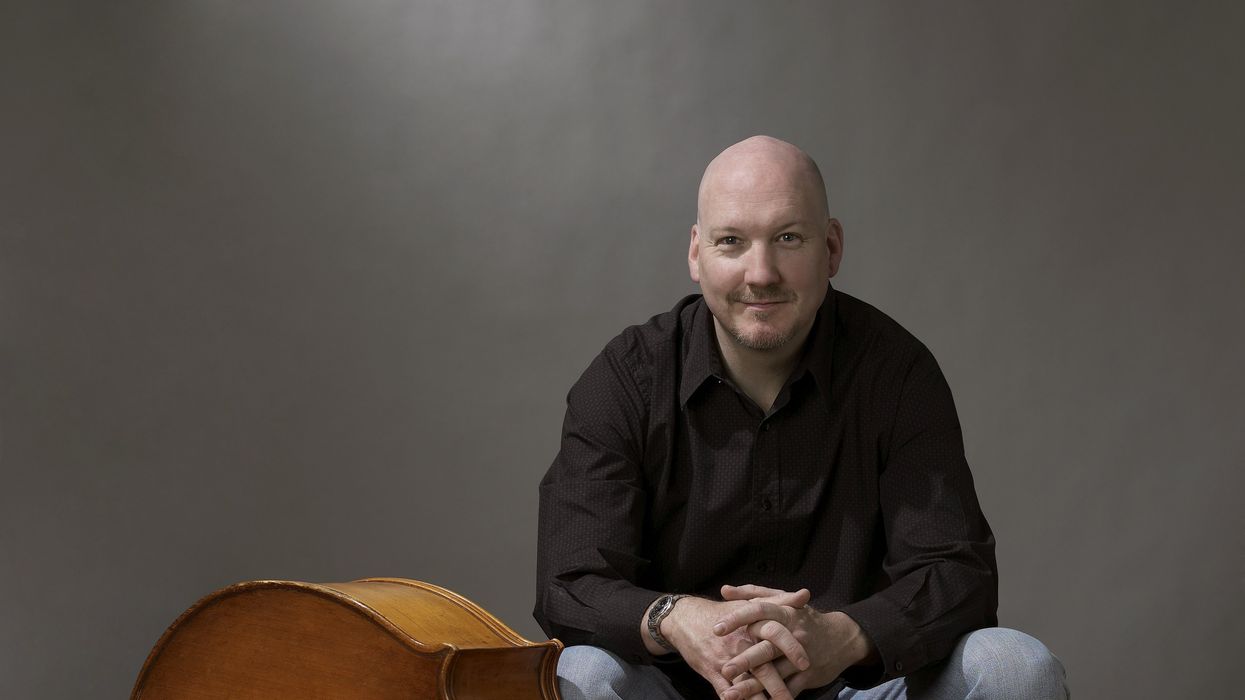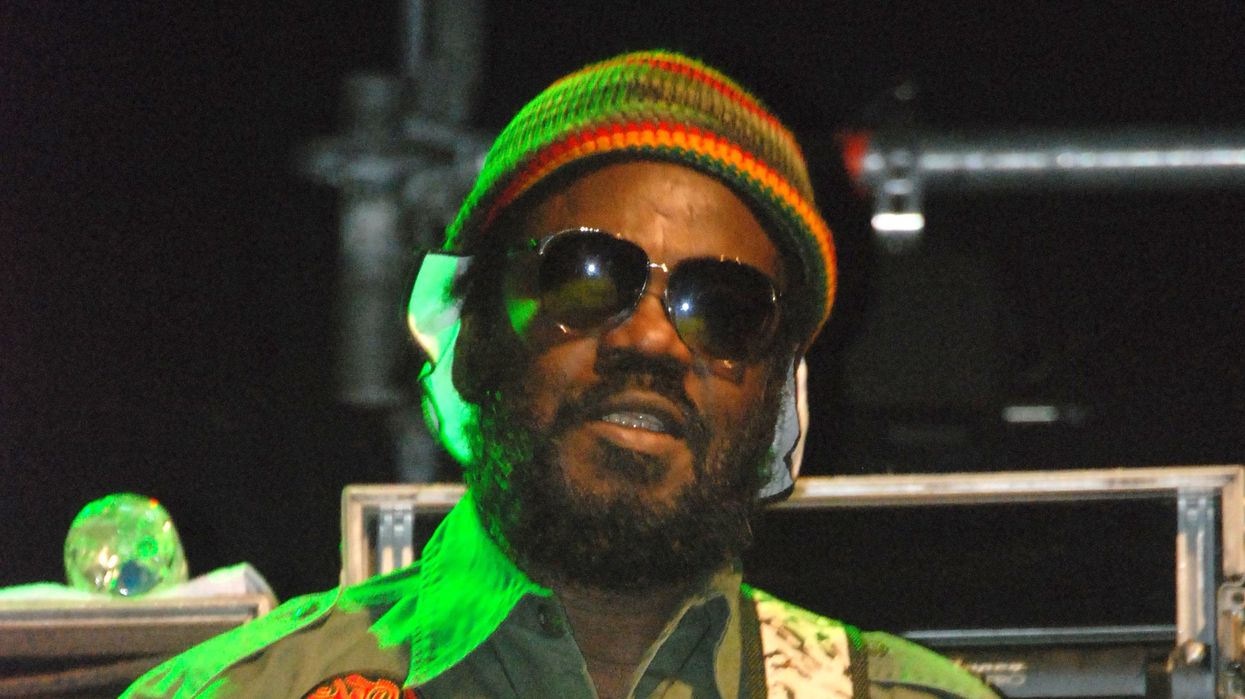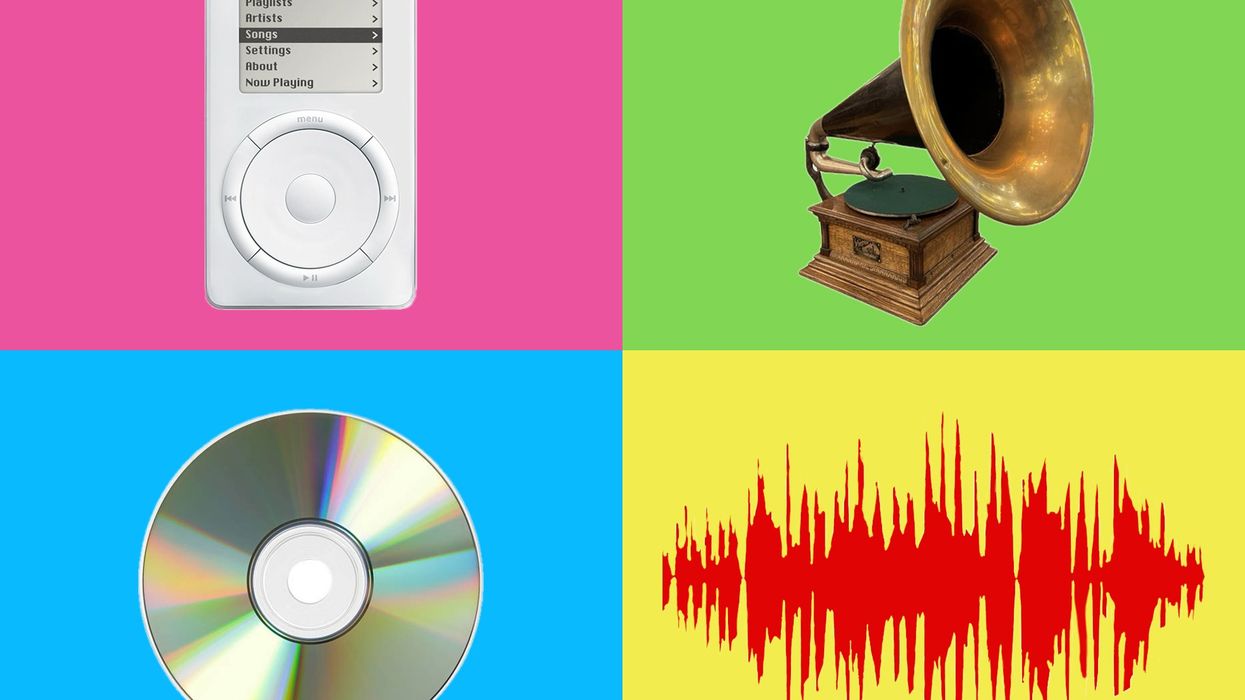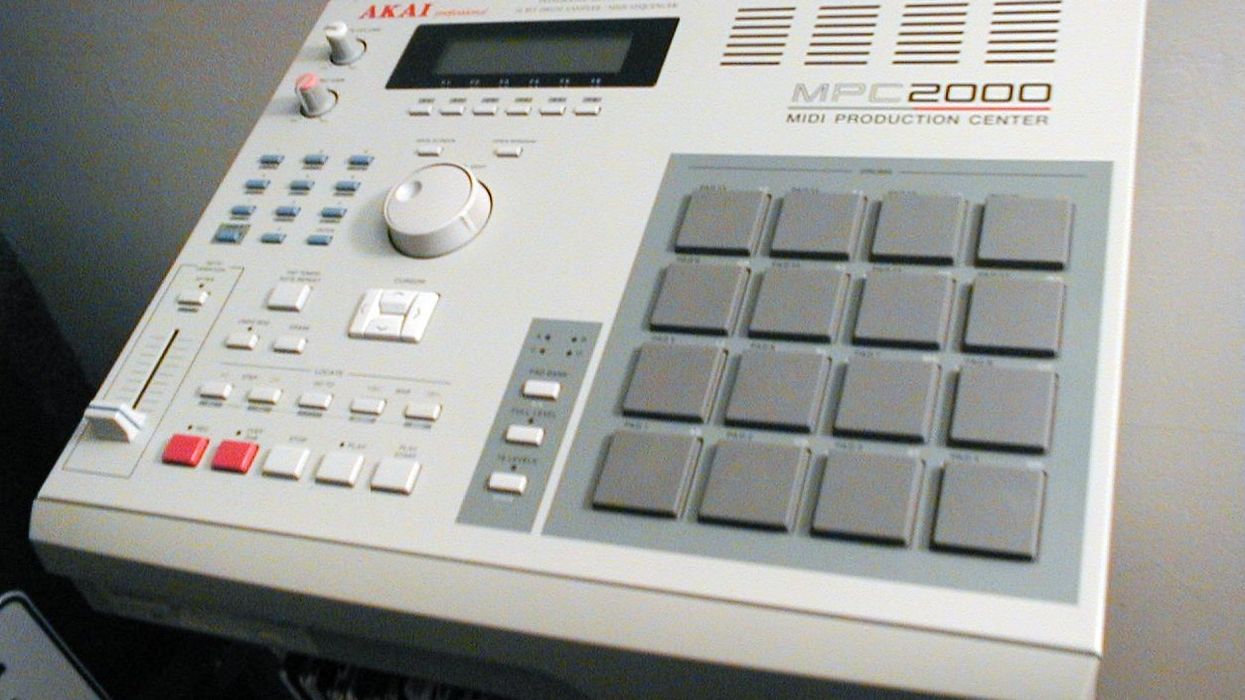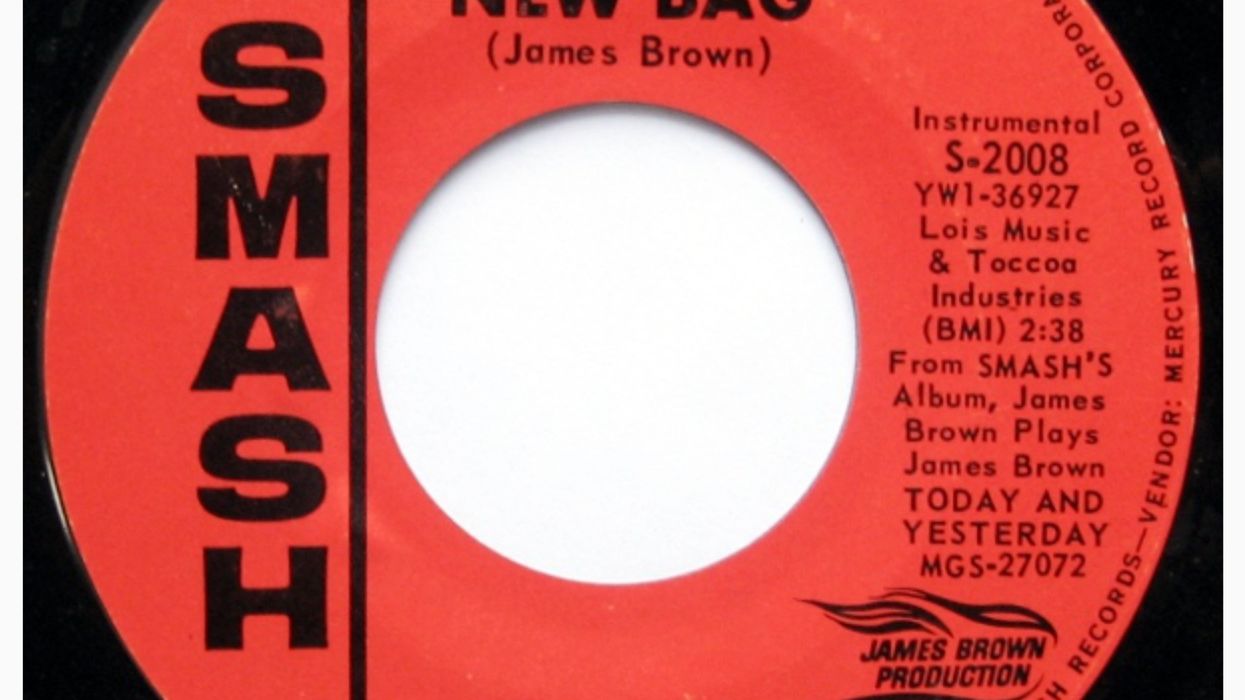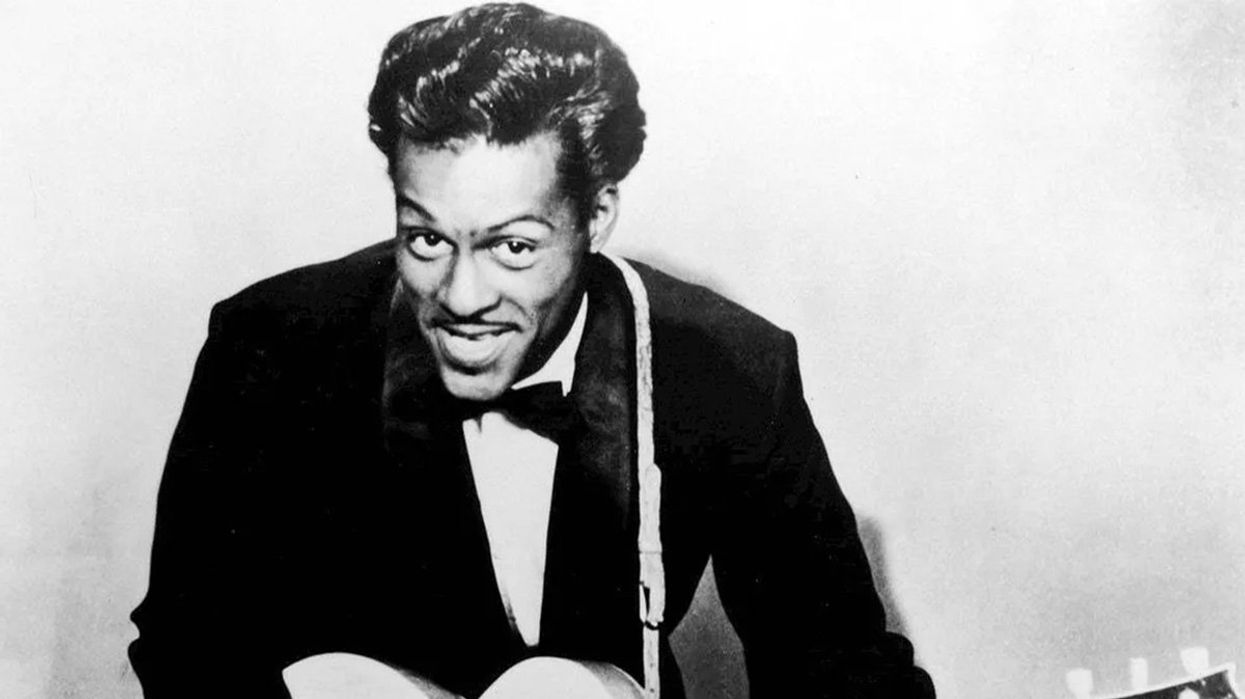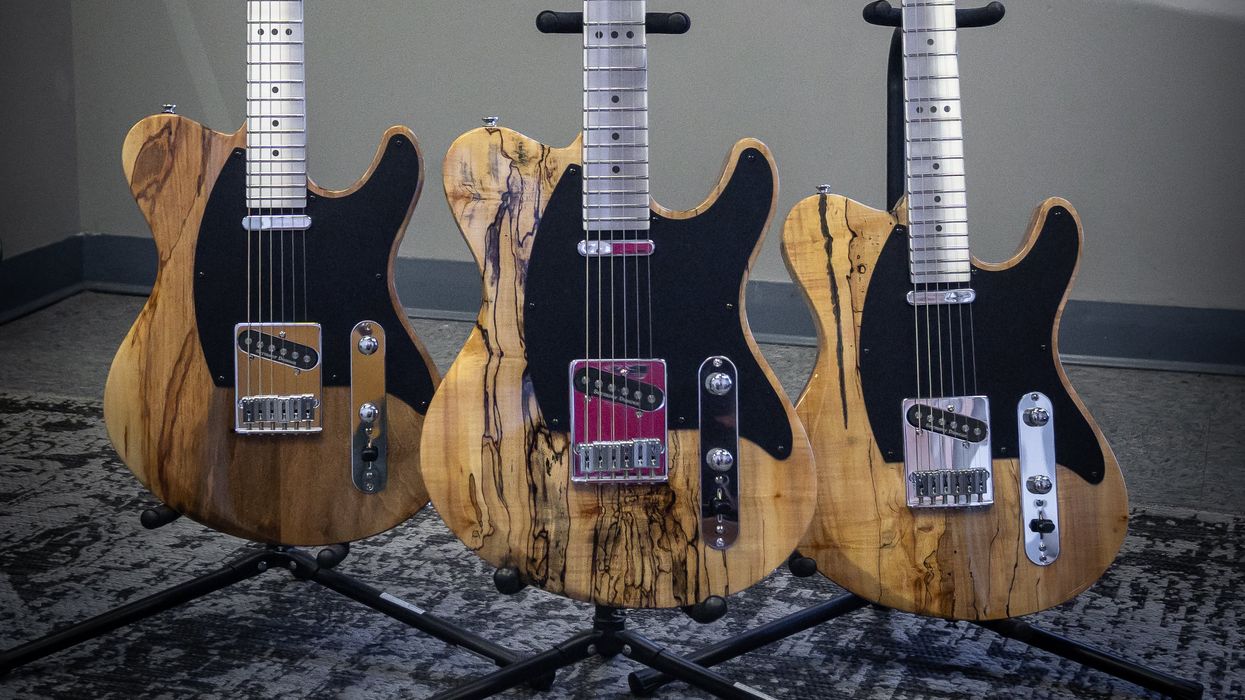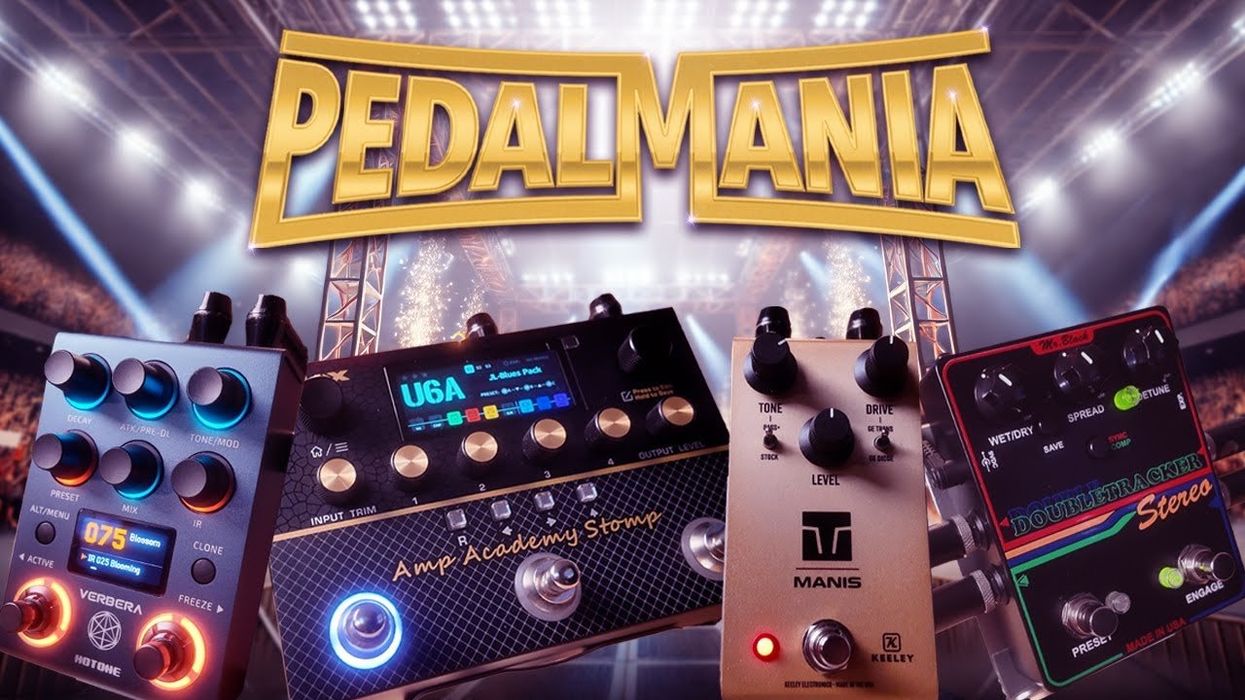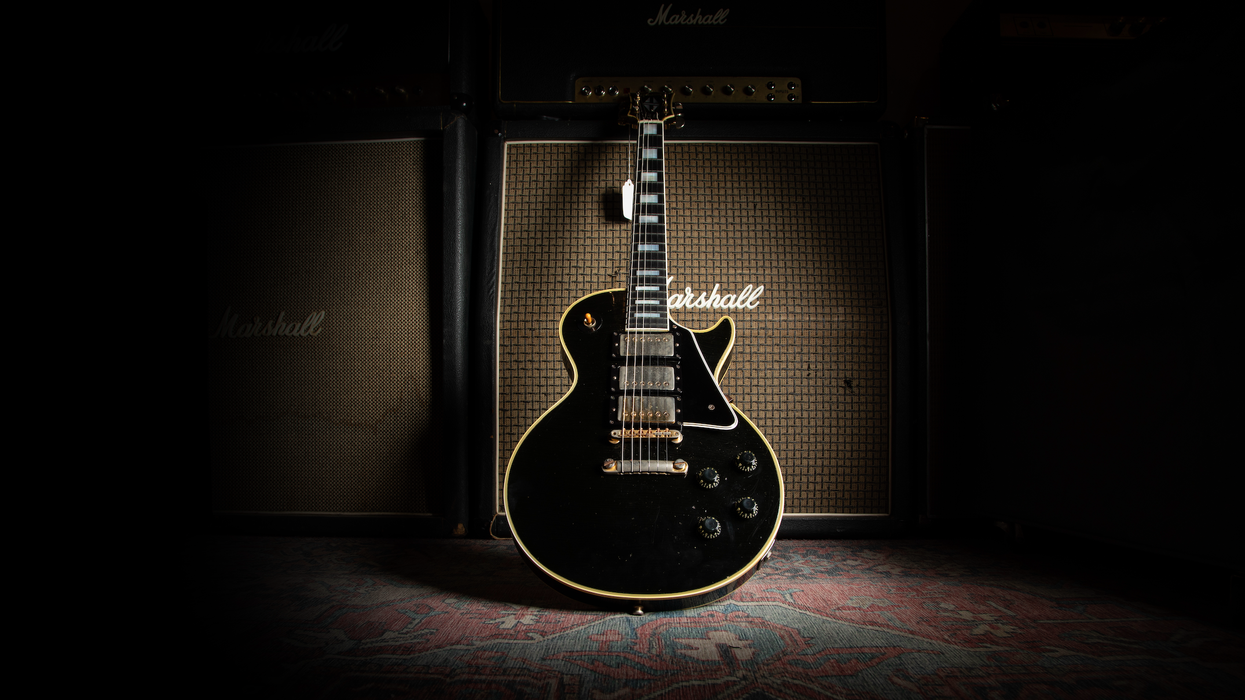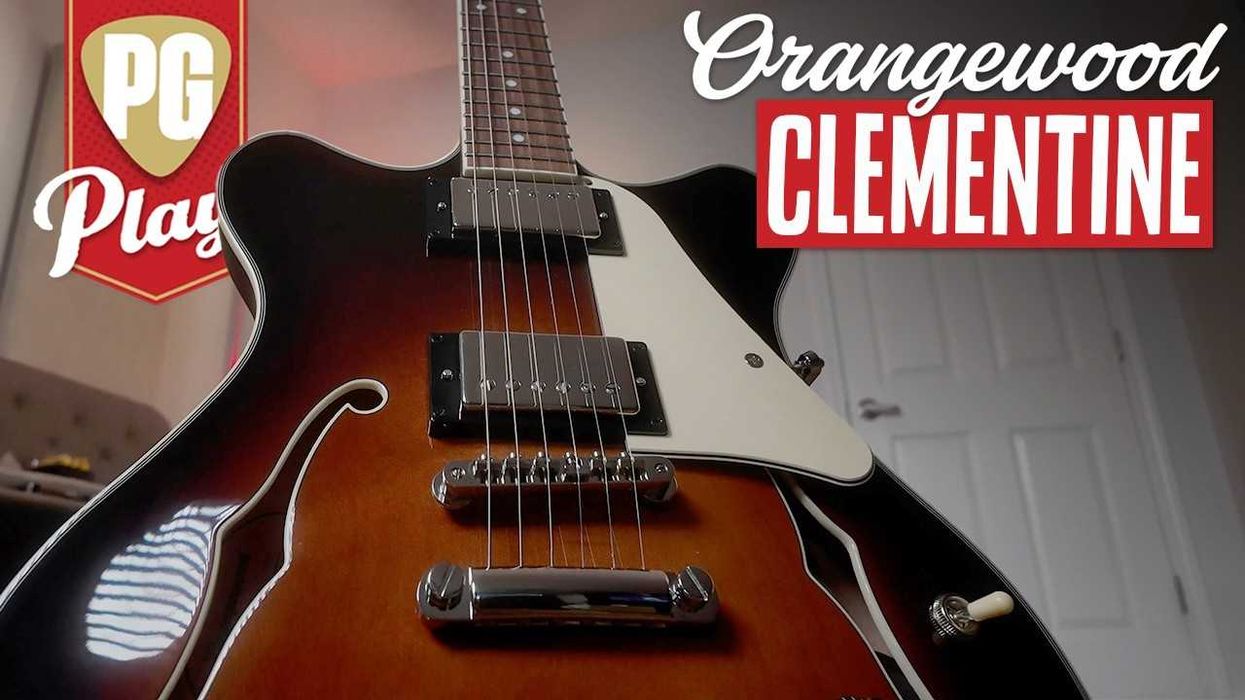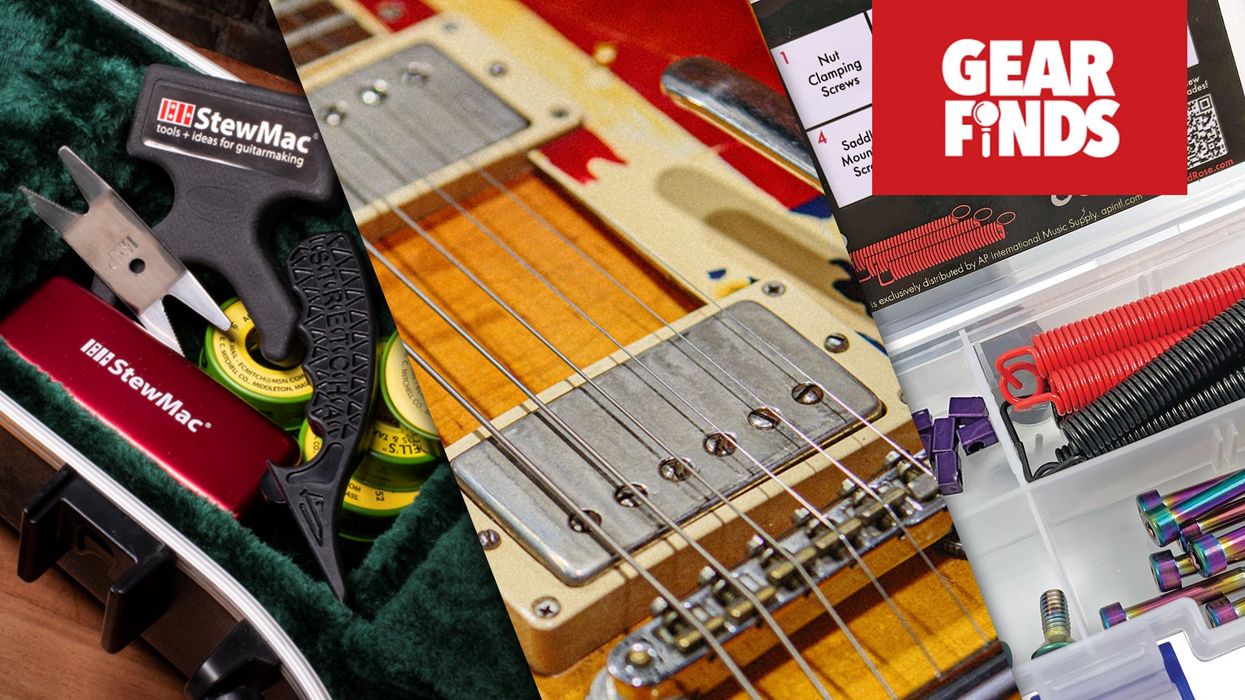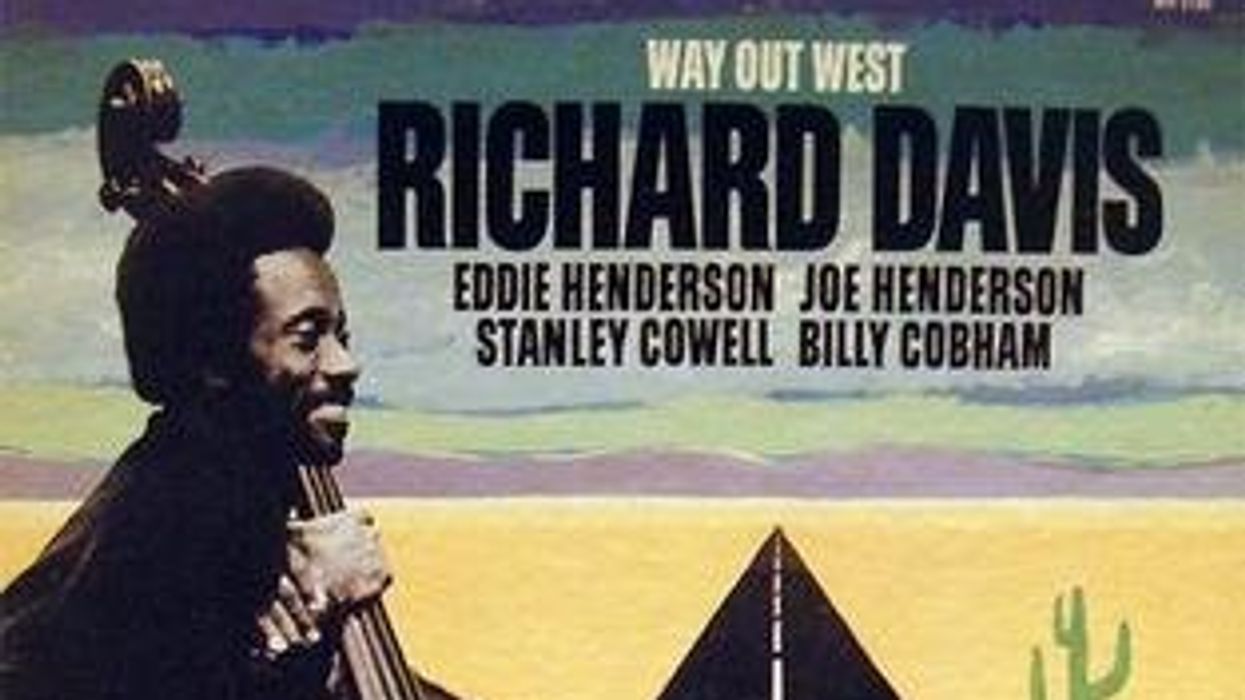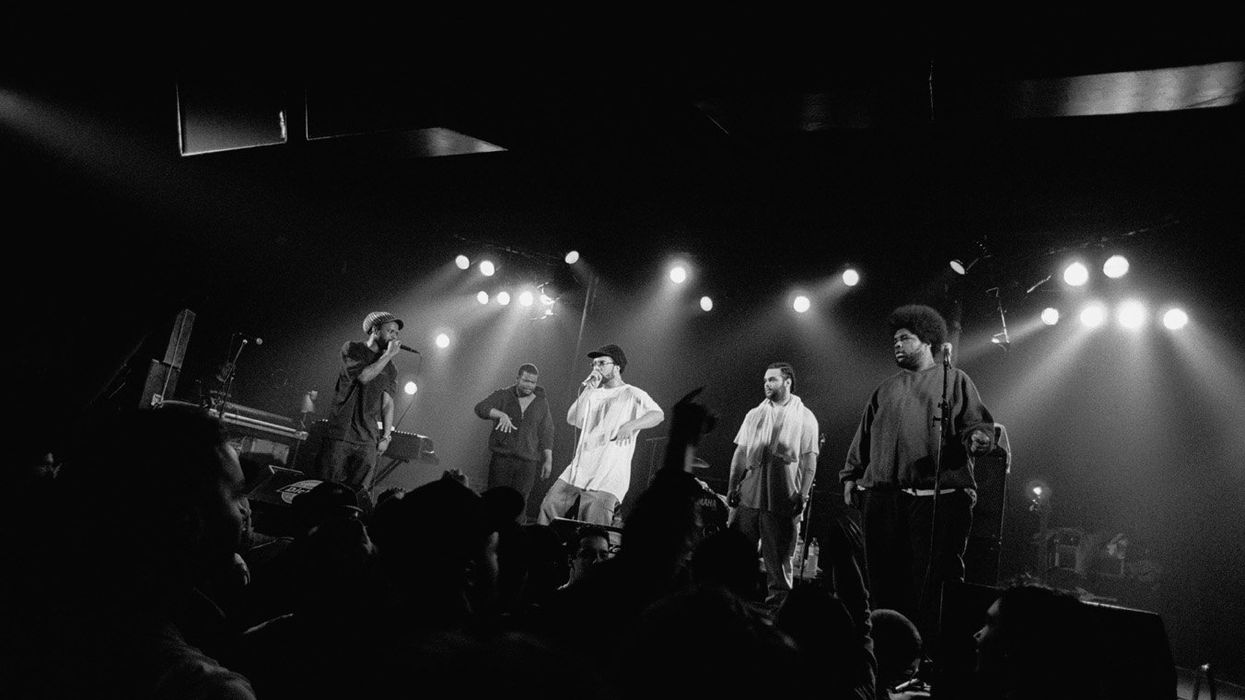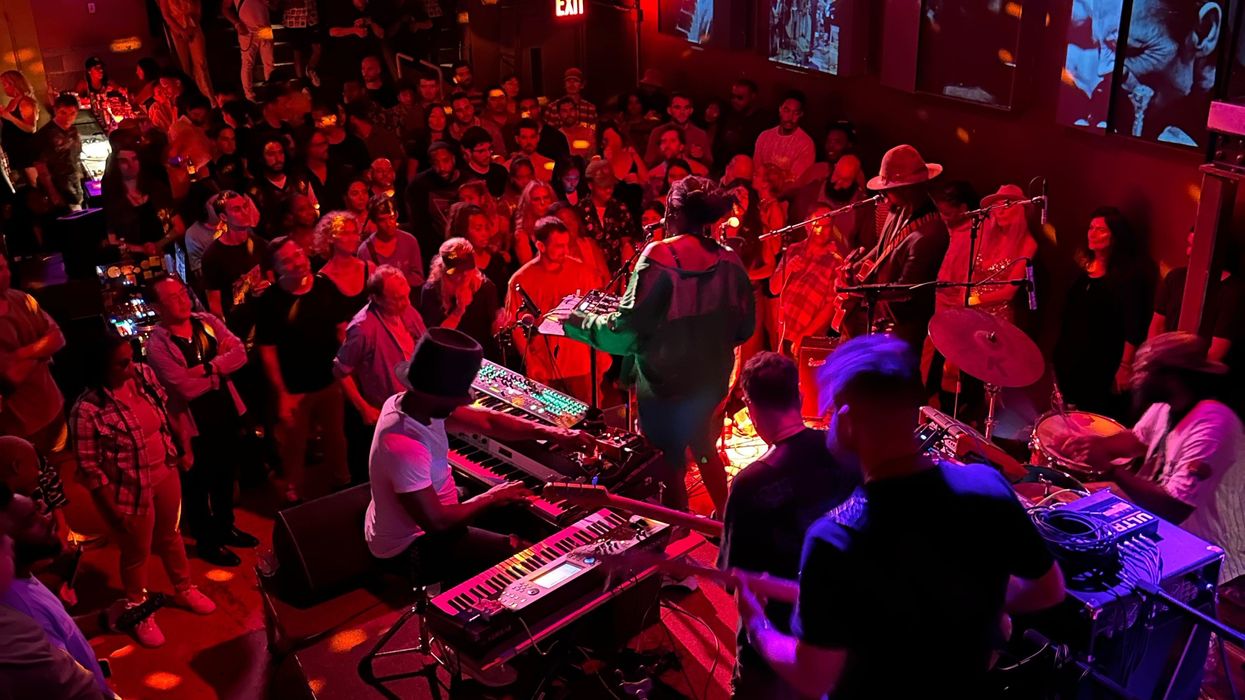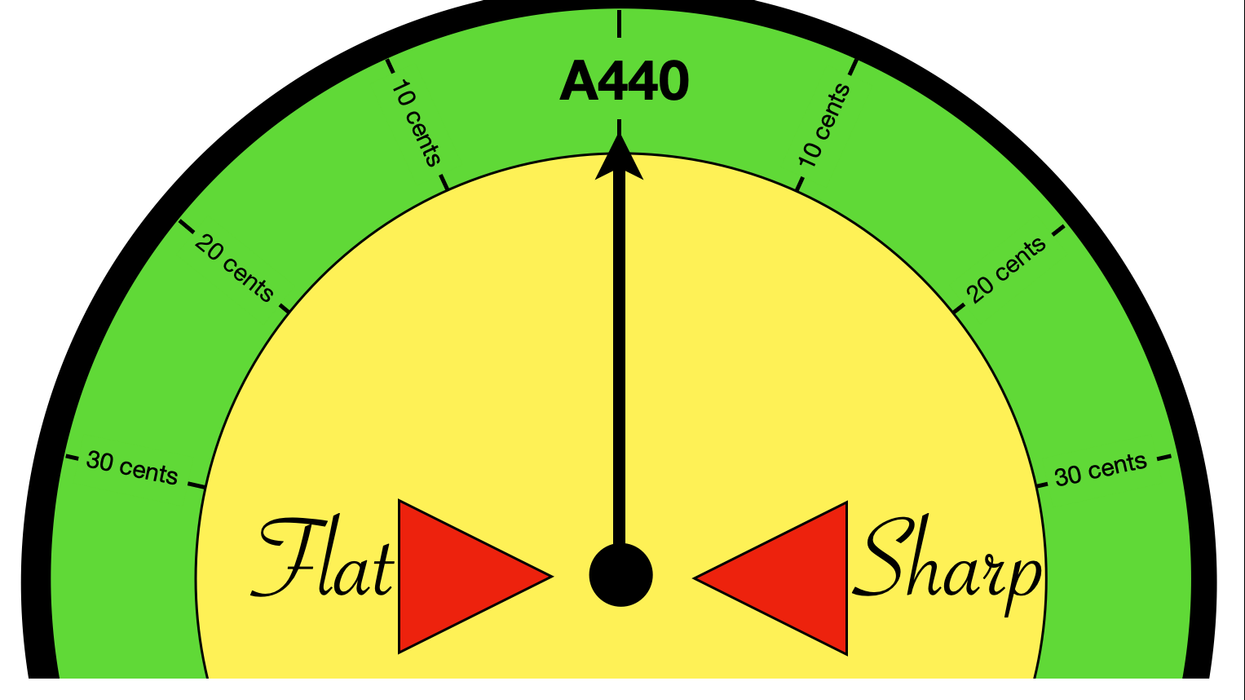The upright bassist, whose credits read like a who’s who of jazz greats, shares on his early musical career, which began when he was just 13 years old.
Recently, I was lucky enough to speak with the great Scott Colley—who’s worked with a host of jazz masters, including Herbie Hancock, Pat Metheny, Jim Hall, and Julian Lage—about bass, music, life, and more. I’ll be presenting this interview in two parts: the first dealing with how Scott came to be a bass player and his early experiences, and the second dealing with his specific areas of advice for all bassists. In this column, I’m sharing Part 1.
Colley was presented with a daunting decision at age 11: bass or trumpet? There were only two openings available in his elementary school orchestra. Honestly, it could’ve gone either way, and today, you could be reading my interview with an accomplished jazz trumpeter. Alas, his older brother, Jim—a drummer—said, “I want a rhythm section player in the family. You should play bass!” And so began the successful bass career of one of the soon-to-be-better-known acoustic bassists on the international jazz scene.
“I was learning a lot from these experiences, where older musicians would say, ‘Learn these tunes by Friday—and you’d better learn them!’”
Born and raised in Los Angeles, Colley’s brother exposed him to jazz at a young age. By 13, he was playing biweekly as the resident bassist at a jam session in Pasadena, was fortunate enough to work alongside many much older and more experienced jazz musicians, including Chuck Manning, Larry Koonse, Serge Kasimoff, Teddy Edwards, and Albert “Tootie” Heath. Some would give him advice or stacks of records and help him figure out what to listen to—or listen for. Like many successful musicians, Colley also had an amazing and influential music teacher at Eagle Rock Jr./Sr. High School. Band Director John Rinaldo managed to keep his program going, even when Los Angeles city schools had no funds, by throwing fundraisers.
Today, looking back, Colley describes himself during this early period as “more of a jazz purist,” who learned mostly by ear as he studied some of greats like Paul Chambers and Charles Mingus. He also took regular lessons with bass veteran Monty Budwig (a local legend). Read on to learn more about his musical journey.
PG: So, you grew as a musician that quickly, in just a few years?
Scott Colley: Yeah! In hindsight, I can’t imagine how that all happened in three years! I was learning a lot from these experiences, where older musicians would say, “Learn these tunes by Friday—and you’d better learn them!” That was the vibe! Another significant moment was when my brother offered to take me to see Weather Report in 1978. I didn’t want to go because I thought it was fusion [laughs].
PG: Wow! The era of some of my favorite Weather Report! Black Market, Mr. Gone, Heavy Weather…. You saw them live?!
Colley: Yeah. This was right after Heavy Weather came out. Seeing Jaco at that moment, hearing Wayne [Shorter] and Joe [Zawinul], their amazing orchestration, and the amount of sounds and grooves that could come out of that band—Peter Erskine, whew…. I thought, this is some shit that I’ve never heard! I don’t know where this all comes from, but I want to know! So, that kind of opened the door for me to think, “Oh, there’s a lot of stuff out here that I haven’t been experiencing.” From there, very shortly afterwards, I discovered—or rather, I realized—the amazing music of Ornette Coleman, beginning with Old and New Dreams [a quartet of Coleman’s former side musicians Dewey Redman, Don Cherry, Charlie Haden, and Ed Blackwell] and then going back to all the amazing classic quartet stuff.
PG: How old were you then?
Colley: About 14 or 15. It was a really great way of discovering music by listening, rather than from the page. But then I realized that there’s certain music that I want to be involved in that does require me to learn to read, understand harmony, the functions of melody, the functions of the bass within music, etc.
Then, I finished high school and floated for a year playing around Los Angeles. I was just gonna move to New York but heard that Charlie Haden was teaching at CalArts. So, I auditioned just so I could meet him. I figured he’d give me some pointers or something, and then I’d head off to New York [laughs]. Charlie said, “We’re getting ready to start a jazz program. Do you want to go to school here?”
So, I went to CalArts! Because of Charlie and David Roitstein, the pianist and heart of the Cal Arts jazz program, I got an amazing education.
They had an incredible program with teachers in jazz, world music, modern classical music, composition…. They’d have visiting artists like John Cage, Morton Feldman, Don Cherry, Pat Metheny, Dave Holland, and artists on faculty from North and South India, Balinese and Javanese gamelan, Nigerian and Ghanaian traditional music, and then Charlie. So, I did four years of CalArts, sold all my stuff, got my bass in a suitcase, and then moved to New York.
